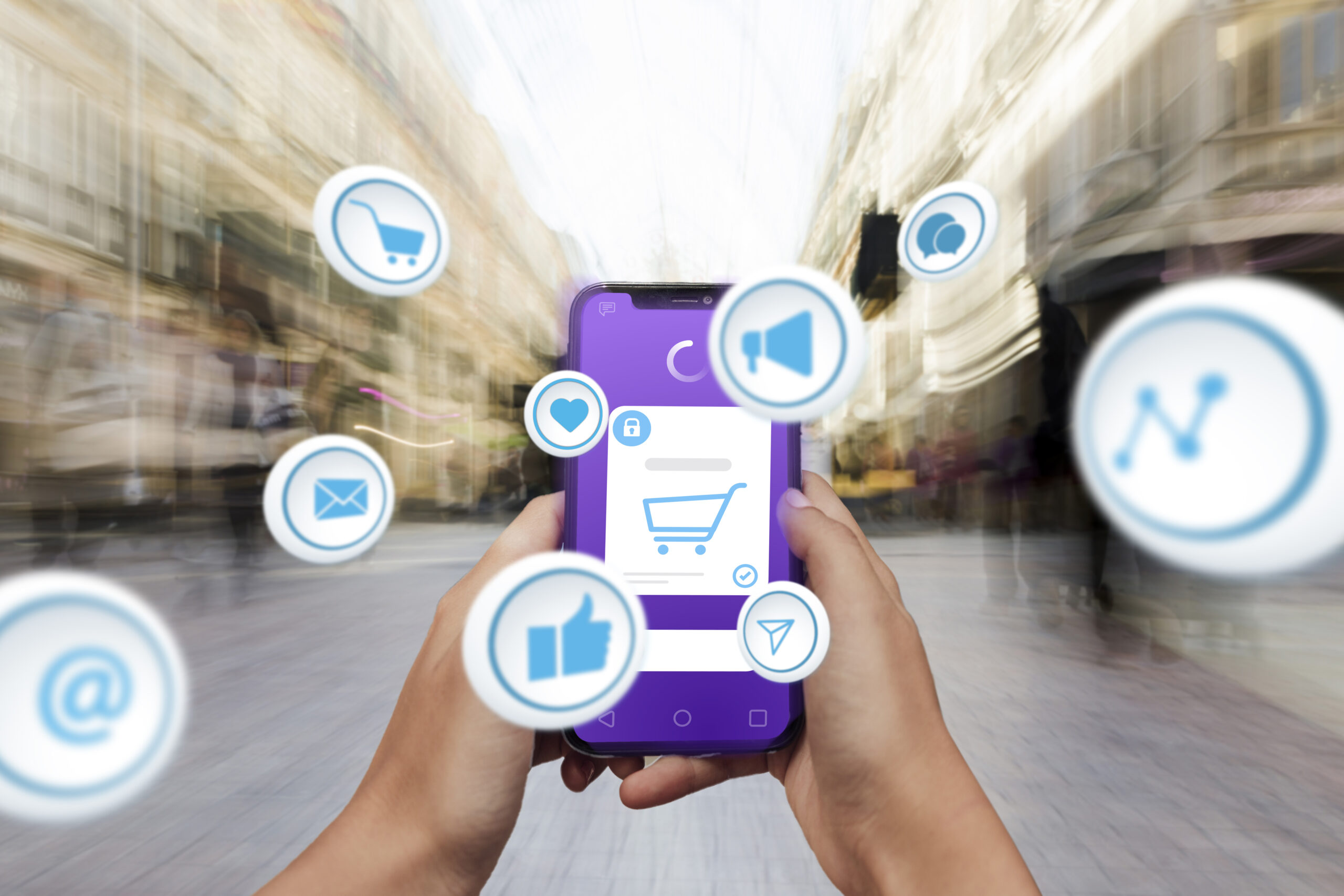
Key Takeaways
- Media Intelligence helps eCommerce brands analyze real-time customer, competitor, and influencer data across digital channels.
- It goes beyond basic tracking, using AI and NLP to generate actionable insights for marketing, product, and crisis strategies.
- Real-time monitoring enables brands to quickly respond to viral trends, PR issues, and shifting consumer sentiment.
- By 2025, smart marketing will rely on predictive intelligence, not guesswork, to stay competitive in a fast-paced digital world.
The reference to hyper-digitality and fast-paced life of 2025 notwithstanding, the eCommerce brands no longer compete on price or product but on innovation and perception, which is insight in this case.
Consumers have become more networked, vocal, and media-driven than they were in the past. To stand out, brands must understand not only what their customers are buying, but also why they are making those purchases.
This is where Media Intelligence comes into the scenario, as it can offer a radical option to e-commerce marketers who do not wish to fall behind the dynamic trends, consumer mood, and competitor behavior in the market.
- What is media intelligence?
- From data to decisions: The role of media intelligence tools
- Media intelligence solutions for smarter campaigns
- The power of real-time media monitoring
- Why is social media monitoring critical for e-commerce?
- Real-world example: Media intelligence in action
- Final thoughts: Intelligence is the new currency
- Frequently asked questions
What is media intelligence?
Media Intelligence refers to the concept of collecting and analyzing data on large numbers of media platforms, including news, blogs, forums, and social media, with the overall aim of gaining insights that can help in marketing, product development, and customer engagement processes.
Unlike the passive approach of traditional media monitoring, which merely tracks brand mentions, Media Intelligence provides robust insights that are valuable and actionable due to sophisticated analytics, AI, and natural language processing (NLP).
These insights are invaluable in the e-commerce sphere, as online reviews, influencer marketing, and trending topics on social media platforms like TikTok, Instagram, and YouTube are key factors influencing the purchasing process.
From data to decisions: The role of media intelligence tools
The aim of Modern Media Intelligence tools is to filter billions of data points in real time. These tools can be used to identify trends early and take action, whether it is a viral unboxing video or a customer complaint that goes viral.
Platforms like Ameany AI Assistant, where you can build AI agents for every need, can further enhance this process by automating data analysis and providing intelligent insights to help brands respond faster and more effectively
Features include:
- Media visibility and perception of competitors’ benchmarking
- Seasonal campaign planning or product launch trend forecasting
- Identification of influencers to reveal new brand ambassadors
- On-the-spot notifications of possible PR risks or reputation problems
At this depth of understanding, eCommerce brands will be able to streamline their marketing efforts, messages, and customer experiences.
Media intelligence solutions for smarter campaigns
A useful Media Intelligence tool will be able to integrate with your CRM, analytics, and advertisement dashboard. It can help your marketing team to be more intelligent in the decisions they make at every stage of the funnel:
1. Planning and messaging of the campaign
Media Intelligence can define what subjects are of interest to your target market. For example, when sustainability is a current trend among your Gen Z buyers, you can develop an eco-friendly message and target the right influencers before launching a campaign.
2. Competitor analysis
Why speculate on what is working with your competitors when you can know? Media monitoring software monitors their media coverage, social media buzz, and customer perception in real-time, giving you the upper hand to switch or continue with your existing strategies.
3. Detection and management of crisis
Real-time social media monitoring ensures that you are aware of issues as soon as they arise, whether it’s a customer complaint or negative press. Early detection enables one to take action before the situation becomes unmanageable.
The power of real-time media monitoring
Real-time media monitoring is no longer a luxury; it is a requirement. The online shelf is very competitive, and consumers have a low attention span. When a customer reviews your product negatively or a YouTuber raves about it, you must be aware of it immediately.
Artificial intelligence-based real-time alerts assist you in:
- Act promptly on customer feedback
- Monitor user-created content
- Increase good publicity
- Deal with unplanned brand references
For example, a single TikTok video can generate thousands of orders in a single night. An instant notification of your media monitoring tool allows your team to leverage the spike in real-time with the AI Ad Generator or increased influencer activity.
Why is social media monitoring critical for e-commerce?
The first line of eCommerce intelligence is social media monitoring. Customers use social media sites to pose questions, provide reviews, and share their real-time experiences.
Leveraging tools like the Sociolyzer platform, a social media content generator, can help businesses track these interactions effectively while also creating engaging content that resonates with their audience.
Media Intelligence platforms collect and compare this information to uncover opportunities and threats that are not immediately apparent.
Social media monitoring can improve eCommerce marketing in the following ways:
- Product feedback: Understand what customers like or dislike on the fly
- Influencer effect: Quantify the effect of various influencers on the brand sentiment
- Customer service insights: Identify the common problems to improve products or support them
Real-world example: Media intelligence in action
A fashion eCommerce brand tracks the sentiment of its new line of products with a Media Intelligence tool.
A few hours after its release, the tool identifies negative sentiment caused by sizing problems posted on Instagram and Reddit.
The brand corrects its ad messaging, increases FAQs, and emails free returns, all in real-time, which saves face and preserves ecommerce sales.
Final thoughts: Intelligence is the new currency
By 2025, eCommerce brands that will have succeeded will not only market more, but will also market smarter.
The right Media Intelligence solutions can help businesses transition to predictive, data-driven decision-making, rather than relying on reactive marketing.
Media Intelligence will be the core of eCommerce success when it comes to optimizing campaigns, preventing PR crises, or simply getting a competitive advantage.
Investing in a robust Media Monitoring Platform not only helps you monitor performance, but it also enables your entire organization to think strategically, act promptly, and win regularly.
Frequently asked questions
1. What is media intelligence in eCommerce?
Media Intelligence in eCommerce refers to the use of AI tools to track, analyze, and act on media content like reviews, social posts, and competitor mentions to optimize marketing and customer engagement.
2. How does media intelligence differ from traditional media monitoring?
Traditional media monitoring focuses on tracking mentions, while media intelligence uses advanced analytics to extract trends, sentiment, and actionable insights from various media sources.
3. Why is real-time media monitoring important for eCommerce brands?
Real-time monitoring helps brands respond instantly to both opportunities (e.g., viral trends) and risks (e.g., negative reviews), enabling timely decisions that protect or boost revenue.
4. What tools are used for media intelligence in eCommerce?
Popular tools include Brandwatch, Meltwater, Talkwalker, and Sprout Social, offering AI-based sentiment analysis, trend spotting, influencer tracking, and CRM integration.
5. How does media intelligence improve marketing campaigns?
It helps tailor messaging, identify emerging trends, benchmark competitors, and detect PR risks, allowing marketers to make data-driven decisions at every stage of the campaign.
6. Can media intelligence platforms integrate with eCommerce CRMs or analytics tools?
Yes, most modern platforms offer seamless integrations with CRM systems, ad dashboards, and analytics tools to centralize insights and automate responses.
7. How do eCommerce companies use media intelligence during a crisis?
They use real-time alerts to detect issues early (e.g., bad press or negative reviews), enabling immediate response such as altering messaging or engaging customer support.
